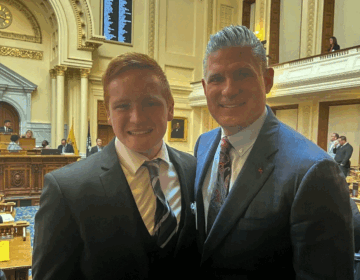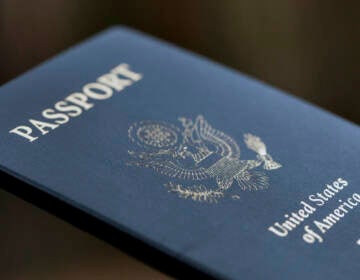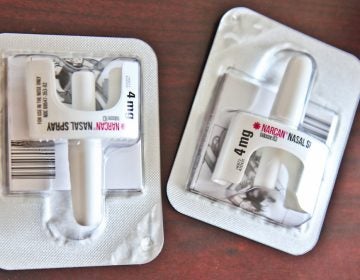N.J. lawmakers could soon approve a bill designed to address the state’s EMT shortage
Volunteer squads are reimbursed only if they don't receive payment, but legislation would allow reimbursement if they charge insurance companies or individuals for services.

New Jersey state Sen. Linda R. Greenstein is one of the prime sponsors of a measure that would expand eligibility for reimbursement from the state’s Emergency Medical Technician Training Fund toward training new EMTs. (Emma Lee/WHYY)
From Camden and Cherry Hill to Trenton and the Jersey Shore, what about life in New Jersey do you want WHYY News to cover? Let us know.
New Jersey has a significant shortage of Emergency Medical Service Technicians, and lawmakers are working to change that.
State Senator Linda Greenstein is one of the prime sponsors of S-2435, a measure that would expand eligibility for reimbursement from the state’s Emergency Medical Technician Training Fund toward training new EMTs.
Right now, volunteer ambulance, first aid and rescue squads are eligible for reimbursement only if they do not receive payment for providing emergency medical services. If approved, the legislation would allow emergency service providers to seek reimbursement even if they charge insurance companies or individuals for providing basic life support services.
Greenstein said because of the current regulations many volunteer squads have reduced their services or shuttered entirely. Changing the rules and offering financial support is critically important for EMS squads across the state.
“If they require prospective volunteers to pay themselves, many people wouldn’t pay for themselves and wouldn’t incur the fee,” she said. “That’s a problem, they would have staffing shortages.”
Greenstein said once the regulations are adjusted squads that charge for services can do so without incurring the additional cost of training. New volunteers can be trained without additional personnel cost, she said. Currently, the Garden State has about 250 volunteer EMS crews and roughly 100 not-for-profit squads that may have paid EMTs. There are also dozens of for-profit companies that provide emergency services.
Paula Weiler, president of the EMS Council of New Jersey, said no matter the squad there are hundreds of hours of training, including mandatory recertification classes that service providers must take every three years. It involves a tremendous amount of work and dedication, she said.
“People are working, they have families, they’re going to school if they’re students, either high school or college, it’s not easy,” she said.
She stressed that becoming a certified EMT is hard, but there is “the satisfaction of bringing a baby into the world, the satisfaction of saving a life by reviving somebody who stopped breathing, or their heart stopped, with CPR.”
“You’re helping your community and it’s something people enjoy doing,” she said.
Noah Staashaught is a full-time member of the Hamilton Township Rescue Squad. The 21-year-old also works part-time for two other EMS companies. He said the measure is badly needed because it will help expand the number of EMS squads across the state.
“There’s been times where we’re understaffed, where we’re only able to put up two ambulances. Here in Hamilton Township we cover over 140 square miles, we’re constantly out on calls, it’s difficult to do,” he said.
He said other towns frequently have to pitch in and that creates a domino effect of squads stretched beyond capacity, which in turn causes burnout. “You can get burnt out on this job very quickly,” he said. “And it becomes an effort just to get up in the morning and come to work.”
He said individuals considering volunteering hear horror stories about personnel shortages.
“It causes people not to do this job anymore, to lose the passion and the love for it, and it all circles back to being short-staffed.”
Weiler said the EMT shortage in New Jersey was made worse by the COVID-19 pandemic, when many EMTs resigned. There is also a shortage of instructors.
The state’s Emergency Medical Technician Training Fund usually contains between $4 million and $5 million. The fund is replenished by moving violations that are issued in New Jersey. Fifty cents of every tick goes to the Training Fund.
The state senate has approved the measure. It’s now being considered in the Assembly.

Get daily updates from WHYY News!
WHYY is your source for fact-based, in-depth journalism and information. As a nonprofit organization, we rely on financial support from readers like you. Please give today.







